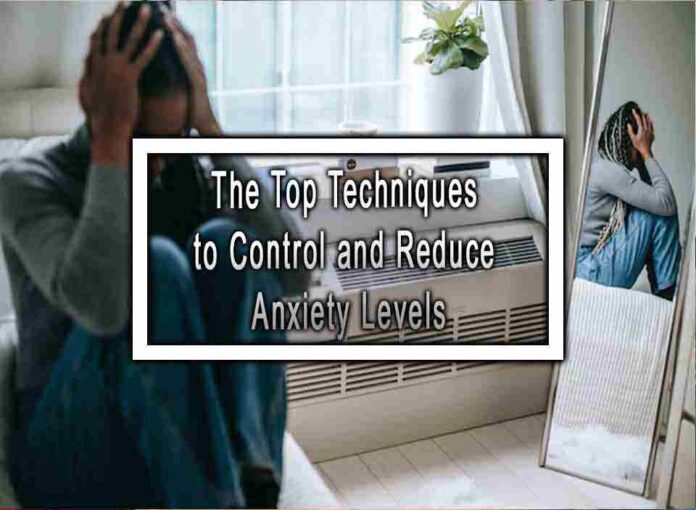Controlling and reducing anxiety levels is essential for maintaining overall well-being and improving the quality of life. Here are some effective techniques to help manage anxiety:
1. Deep Breathing:
– Practice deep breathing exercises to calm the nervous system. Take slow, deep breaths, hold for a few seconds, and then exhale slowly. This technique helps reduce physiological responses to anxiety.
2. Mindfulness and Meditation:
– Engage in mindfulness practices or meditation to focus on the present moment and cultivate a sense of calm. Regular meditation can help decrease anxiety levels and increase self-awareness.
3. Regular Exercise:
– Engaging in physical activity, such as walking, jogging, yoga, or swimming, releases endorphins, which act as natural mood elevators and stress reducers.

4. Cognitive Behavioral Therapy (CBT):
– CBT is a proven therapeutic approach to managing anxiety. It helps identify negative thought patterns and teaches coping strategies to replace them with more positive and realistic thoughts.
5. Progressive Muscle Relaxation (PMR):
– PMR involves tensing and then relaxing different muscle groups to release physical tension associated with anxiety.
6. Limiting Caffeine and Alcohol:
– High levels of caffeine and alcohol can exacerbate anxiety symptoms. Limiting or avoiding these substances can help manage anxiety levels.
7. Adequate Sleep:
– Ensure you get enough quality sleep each night. Lack of sleep can contribute to increased anxiety levels.
8. Time Management:
– Plan and organize your day to reduce stress and prevent feeling overwhelmed by tasks and responsibilities.
9. Social Support:
– Share your feelings and concerns with trusted friends or family members. Talking to someone you trust can provide comfort and reassurance.
10. Limiting Exposure to Triggers:
– Identify situations or environments that trigger anxiety and try to limit exposure to them. If avoidance is not possible, use coping techniques to manage anxiety in those situations.
11. Positive Self-Talk:
– Challenge negative thoughts and replace them with positive affirmations. Cultivating a more positive mindset can help reduce anxiety.
12. Seek Professional Help:
– If anxiety becomes overwhelming or affects daily functioning, consider seeking help from a mental health professional. They can provide personalized strategies and support.
It’s essential to remember that managing anxiety is a process, and what works for one person may not work for another. Experiment with different techniques to find the ones that suit you best. Combining several strategies and making them a part of your daily routine can be particularly beneficial in reducing anxiety levels over time.











